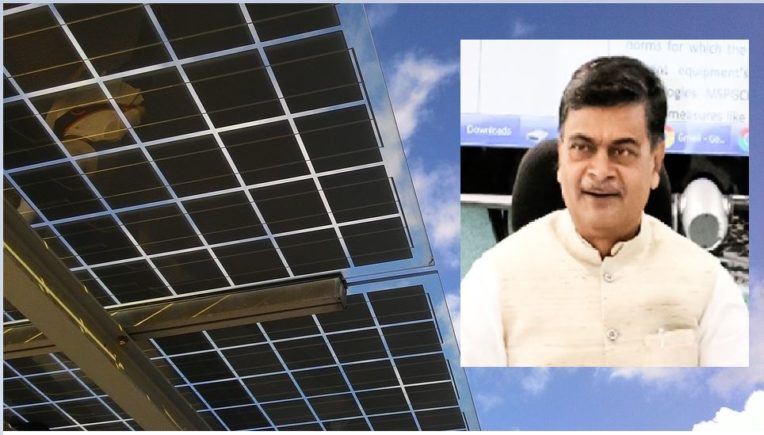

Union Power Minister R.K. Singh has sounded a warning to Finance Minister Arun Jaitley in a letter , claiming that states are not very keen on purchasing solar power even at low tariffs and that the country’s installed renewable energy capacity might get stranded as a result. Ironically, this happens even as spot prices on the Indian Energy Exchange have reportedly surged to an all time high of over RS 17 currently. This surge was blamed on low coal stocks, and a seasonal drop in wind and hydro generation .
In a recent letter to finance minister Arun Jaitley, Singh wrote: “If any discom purchases renewable energy at Rs 2.44 per unit (lowest discovered through latest auctions), then along with the fixed cost (which they will have to pay thermal stations under PPAs, whether or not electricity is lifted), the total cost per unit would come to Rs 4.04, which is higher than the average price (Rs 3.25/unit) which pay for thermal power.”
He added: “And renewable energy is intermittent… In such a situation, the achievement of renewable energy capacity of approximately 88,000 MW (71,300 MW established and 17,500 MW under construction) could only happen after constantly pursuing the states, but the states flatly refused to sign PPAs for renewable energy if the rates are any higher.”
Singh also pointed out that the state-run Solar Energy Corporation of India (SECI), the nodal government agency for renewable energy projects, will have to shell out Rs 40 lakh/year for a period of 25 years as per the PPA arrangements for each MW of capacity. Stating that “this is not a situation that SECI can afford”, Singh said, “Therefore, there is absolutely no question of SECI getting into a situation, where it accepts a bid and then cannot get the PPA signed by the states for the power at that rate.” The letter explains the decision of SECI to set tight limits, and even cancel bids it has considered too high. We take it , it was because it was not confident of getting state discoms to signs PPA”s at those rates.
India has an ambitious target to increase its solar capacity to 100 GW by 2022 from 23 GW at present, but 4 GW of recent solar bids have been scrapped due to high prices discovered. Multiple projects have struggled to garner sufficient interest and prices which have forced the hand of the agency to extend multiple deadlines, more famously the SECI’s ambitious 10 GW of solar power tender. The problems could be exacerbated with the imposition of 25% safeguard duty on import of solar cells/modules, which is seen to make solar power more unattractive to states due to potential rise in prices.
1. The mandate for blending Compressed Biogas (CBG) with natural gas has come into effect…
Andhra Pradesh is striving towards greening its energy sector with quite some speed. In a…
With an objective to bolster India’s green energy goals, a Tripartite Agreement has been signed…
The Union MNRE Minister Pralhad Joshi launched the Green Hydrogen Certification Scheme of India (GHCI)…
India’s energy conglomerate Bharat Petroleum Corporation Limited (BPCL) has commissioned a 5MW green hydrogen plant…
In a historical development, the European Space Agency (ESA) has successfully launched its pioneering ‘Biomass’…